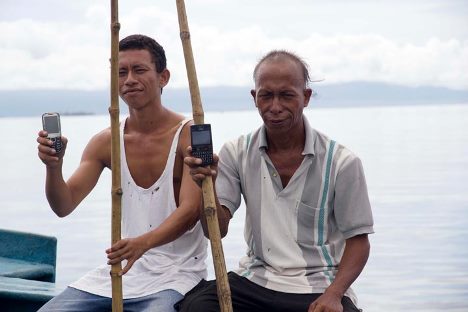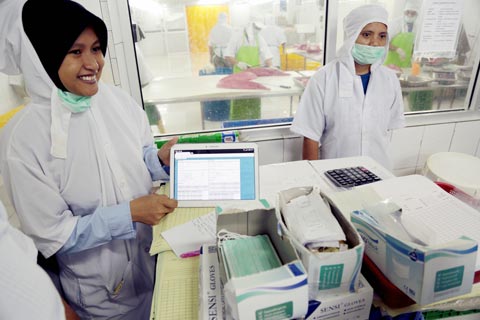BIIA’s Recommended Weekend Reading: This is an interesting example of a Blockchain application which was sent to BIIA by Provenance
The global system of trade and commerce that sits behind our purchases is rarely something we think about, yet it spans the earth and impacts the wellbeing of people and environments.
Provenance was established to enable trusted transparency of key social and environmental indicators along even the most complex chains of custody, to incentivize ethical labour practice and environmental preservation, aid standards compliance and eradicate fraudulent reporting.
We use blockchain technology, along with mobile and smart tags, to track physical products and verified attributes from origin to point of sale (POS). The first system to use blockchain was a peer-to-peer (p2p) payment system that became (in)famous under the name of Bitcoin. On 22nd May 2010, Laszlo Hanyecz paid a fellow Bitcoin user 10,000 BTC for two Papa John’s pizzas – money transfer that took place on the internet without the need for an institution (e.g. Visa, Paypal) to process the transaction.
Six years later on 22nd May 2016, Provenance used the same p2p technology to track a tuna fish caught in Maluku, Indonesia from landing to factory and beyond – demonstrating how blockchain technology can enable supply chain transparency and traceability.
 Indonesia is the largest tuna-producing country, ideal for assessing opportunities to drastically increase transparency in fish and seafood supply chains. Conducting research and deploying our prototype in the region allowed us to understand the problems, assess technology opportunities and iterate both the design and implementation of our application for building an important part of an impactful and sustainable software system for end-to-end (e2e) traceability.
Indonesia is the largest tuna-producing country, ideal for assessing opportunities to drastically increase transparency in fish and seafood supply chains. Conducting research and deploying our prototype in the region allowed us to understand the problems, assess technology opportunities and iterate both the design and implementation of our application for building an important part of an impactful and sustainable software system for end-to-end (e2e) traceability.
Provenance focused deployment in two main supply chains:
A broken system: When your fish supper supports slavery
 Human rights abuses, overfishing, fraud, illegal, unreported, and unregulated (IUU) fish: a number of practices in the seafood industry are compromising the wellbeing of environments, wildlife and people all over the world. According to The Guardian, “slaves forced to work for no pay for years at a time under threat of extreme violence are being used in Asia in the production of seafood sold by major US, British and European retailers.”
Human rights abuses, overfishing, fraud, illegal, unreported, and unregulated (IUU) fish: a number of practices in the seafood industry are compromising the wellbeing of environments, wildlife and people all over the world. According to The Guardian, “slaves forced to work for no pay for years at a time under threat of extreme violence are being used in Asia in the production of seafood sold by major US, British and European retailers.”
In Indonesia, more than 60 million people live within coastal communities and tuna fisheries are a major source of employment and foreign exchange. Particularly in the North of Indonesia, however, tuna fishing is complicated by Philippine tuna fishing vessels, with most of the fish catches by Philippine purse seiners unrecorded.
Blockchains present a global, inclusive solution for traceability
 What if we could share the same truth between all stakeholders – fishermen, factories, certifiers and consumers, without giving any of them a backdoor to the system? Blockchains offer precisely this opportunity. This project explored new methods for enabling traceability – a secure flow of information enabling the full chain of custody to be accessed, including key social attributes such as fishing method, vessel type and compliance data.
What if we could share the same truth between all stakeholders – fishermen, factories, certifiers and consumers, without giving any of them a backdoor to the system? Blockchains offer precisely this opportunity. This project explored new methods for enabling traceability – a secure flow of information enabling the full chain of custody to be accessed, including key social attributes such as fishing method, vessel type and compliance data.
Building on the blockchain enables a global p2p network to form: an open platform that can deliver neutrality, reliability and security, particularly in grassroots trade. It makes it possible to avoid double-spending of certificates and claims, which is otherwise impossible without a trusted third party. It acts as the base layer of truth that everyone throughout the chain can refer to in a trusted way. It allows the definition of unbreakable rules called smart contracts that will be enforced by the protocol itself.
This project tested our beta chain-of-custody application to estimate and optimize its impact for slavery-free, sustainable practices in the fishing industry. Read more about the technology and its background in our whitepaper.
Existing systems and the technology opportunity: We met with the heads of eight fishing organisations, their General Managers and Quality Assurance (QA) officers, working to revive Indonesia’s declining pole and line and handline fisheries, increasing accountability and trustworthy data on social standards at origin. They are all members of AP2HI, the Indonesian Association of Pole and Line and Handline Fisheries.
Source: Provenance






















Trackbacks/Pingbacks